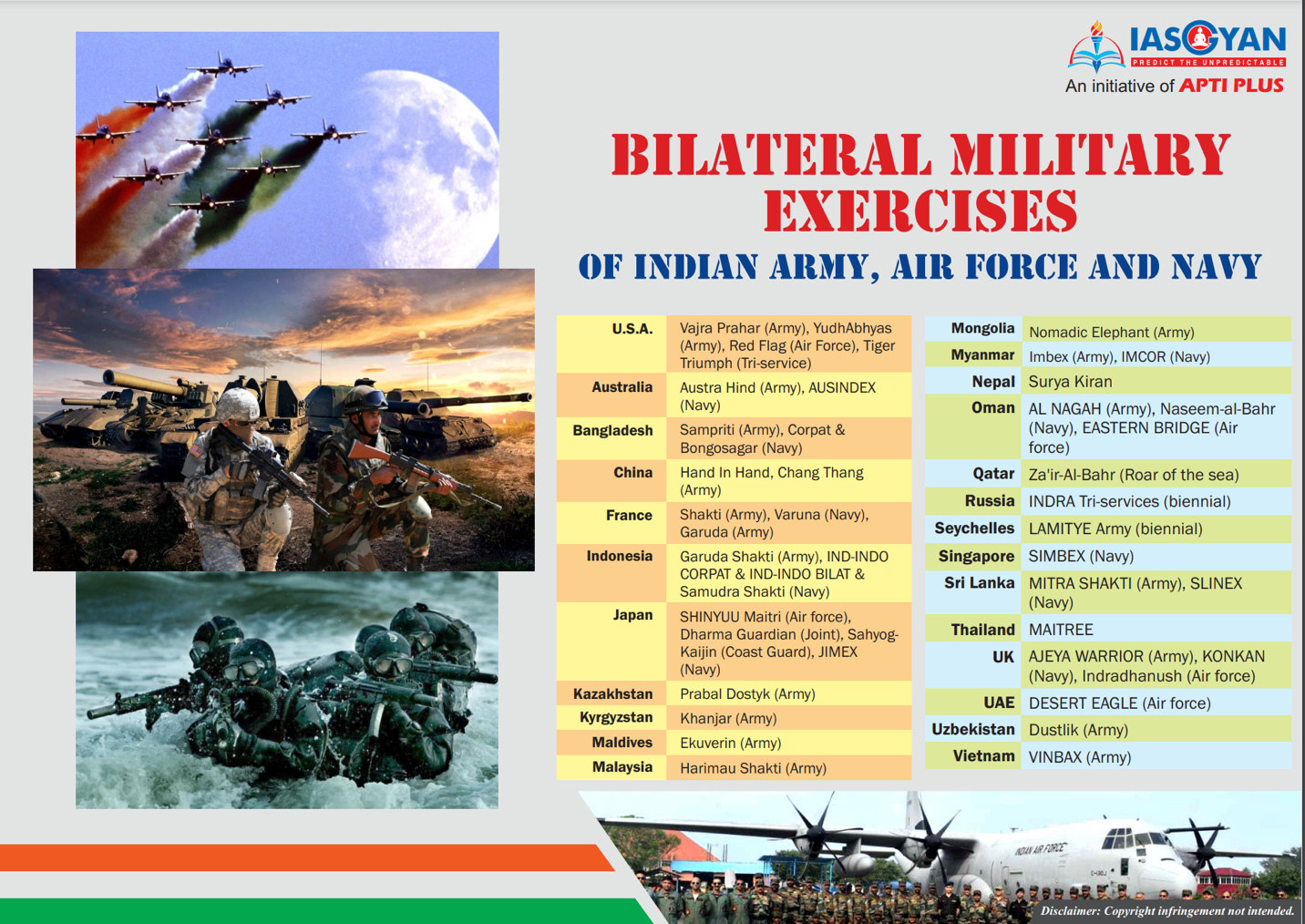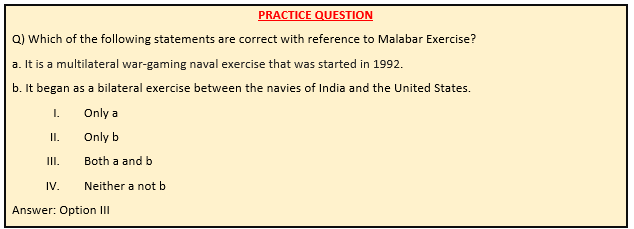Description

Copyright infringement not intended
Context: Australia will host the Malabar multilateral naval exercise, consisting of India, Australia, Japan and the U.S., for the first time this year.
Details:
- The high tempo of bilateral engagement between the two countries will continue with Australian Prime Minister Anthony Albanese and Foreign Minister Penny Wong scheduled to visit India early March during which officials said some major defence initiatives could be announced.
- The Quad Foreign Ministers are scheduled to hold a meeting a day after the G-20 meeting. Australia is scheduled to host the Quad summit later this year.
- Malabar, which began as a bilateral exercise, is now one of the cornerstones of military interoperability of the Quad forces.
.jpeg)
What is Malabar?
- It is a multilateral war-gaming naval exercise that was started in 1992.
- It began as a bilateral exercise between the navies of India and the United States.
- Navies of the four member nations of the Quadrilateral Security Dialogue, or the Quad — India, the United States, Japan, and Australia — are participating in the 25th edition of the Malabar Exercise
- From 2002 onward, the exercise has been conducted every year.
- Japan and Australia first participated in 2007, and since 2014, India, the US and Japan have participated in the exercise every year.
How did it the exercise expand from a bilateral exercise?
- Japan joined the naval exercise in 2015 as a permanent member, and Malabar became a trilateral exercise.
- Last year, for the first time in over a decade, the exercise saw the participation of all four Quad members.
- It was the second time that Australia participated in the Malabar series of Naval exercises.

Why did Australia return, and why is its participation important?
- As a grouping of four powerful navies in the Indo-Pacific region, the Quad has irked China, which is flexing its military power globally.
- Earlier, it was due to the possibility of riling China that India had not expanded Malabar and, to an extent, why Australia had pulled out after 2007.
- But with China’s relations vexed with all four participating nations — and with an ongoing military standoff in eastern Ladakh for more than 15 months — the Malabar sends a strong message.


https://epaper.thehindu.com/ccidist-ws/th/th_delhi/issues/26048/OPS/GI9ATH4IJ.1+GUFATHJNN.1.html













